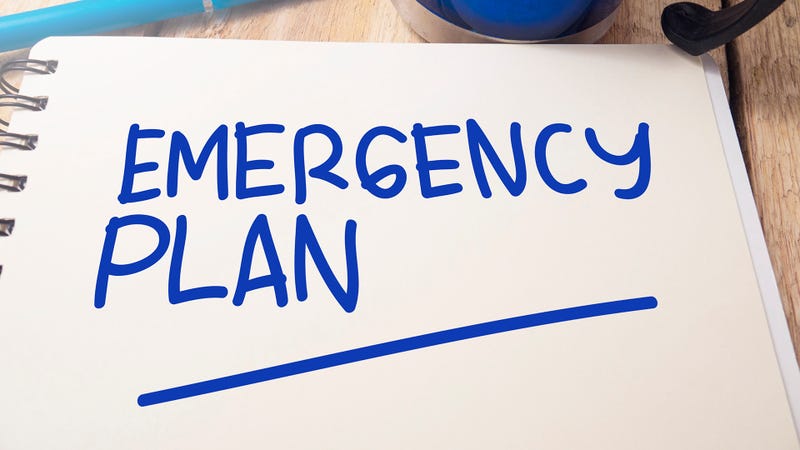
With so many big stories in the news every day., it can be easy to forget that we could still count the hours since the Tri-state experienced its latest earthquake -- a magnitude 4.8 tremor centered near Lebanon, NJ that rocked a good portion of the eastern seaboard on Friday, April 5.
LISTEN NOW: Earthquake prep with NYC OEM Commissioner Zach Iscol
“I don't know how in that moment I was able to grab my kids and move to the center of the house under something sturdy,” Foxx says. “It was the weirdest thing I've ever experienced in my whole life.”
“After everything settled, I said to my husband, ‘Do we even know what to do in the event of an earthquake?,‘” Annie adds. So, with that in mind, today we decided to speak with THE authority on what the heck to do: New York City Office of Emergency Management Commissioner Zach Iscol.
“One of the things that we first start doing is figuring out what are the potential impacts, what are the things that we need to be responding to?,” Iscol tells us. “We started working with all of our agency partners looking if there's a spike in 911 calls, are there impacts to the subway, are there bridges we need to be concerned about, building collapses? Fortunately, none of that occurred. USGS then at about 10:35AM confirmed that it was an earthquake, and we began most of our public messaging in addition to looking at what types of impacts there were around the city.”
“I understand that we have a lot more work to do in making sure New Yorkers know what to do during an earthquake. It became very clear, we started getting calls as to whether folks needed to evacuate their buildings, as to what they should be doing. So we became focused on, ‘How do we get that information out to the public?’” In the fall, Zach explains, “we do something called ‘The Great Shakeout.’ I encourage everybody to sign up for it, but it's an opportunity to practice earthquake drills. We do it every October and we hope more New Yorkers will do it with us this year.”
If you happen to be inside of your own home or car when the shaking starts, Iscol says, “Number one is, try and get under something sturdy, staying away from objects that can fall, heavy objects in particular. If you're driving, pull over to the side of the road and wait for the shaking to stop.” If we’re caught outside, he advises we “try and get to an open area. If in an area that has potential rockfall or building facades with bricks, you want to stay away from those things that can then hurt you.”
Immediately after the earthquake, Zach’s office got to work checking bridges and subways to ensure the safety of travelers. “One of the things that we start doing is working with all of our partners,” he says, “Con Ed, Port Authority, the airports, the subway system, you name it… to really understand what are the impacts around the city. What are the things that we need to be really concerned about? Fortunately, with the initial inspections and the later inspections, no real damage.”
That being said, “we do encourage New Yorkers, if you are worried about a building you live in or something of that nature, call 311,” he says. “If you smell gas after an earthquake, call 911. Always feel free to report damage. We've had building inspectors who have been out all weekend tracking on each one of those reports to investigate those buildings and so far no real major impacts or anything of significant note.”
Every family is different, and that’s why the NYC OEM website has resources to help get a plan in place that suits their specific needs in case of an emergency. “It's about designing a plan that works for yourself at the same time. What I encourage everybody to do is make sure you have some key documents in a plastic bag to protect it from water damage. Make sure you have some cash on hand, batteries, a flashlight, additional medications, things that you're gonna need.”
As listeners are aware, Annie’s husband likes to leave her with an empty gas tank… so is this a way to guilt him into finally filling it up? “You know, as somebody who has been happily married for 10 years,” Zach tells Annie, “I will tell you and I will tell your husband -- you are right.”
CLICK HERE for more information and to make your own emergency action plan.
